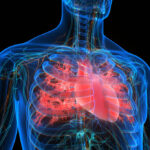- Home
- Who We Are
- Shop
- Products
- GlycoCheck
- The Science
- Study: Improving Aortic Aging with Endocalyx Pro
- Improve Vascular Health with This Supplement
- Promising Supplement for Kidney Health
- Inositol & Insulin Resistance
- PEMF Therapy Benefits
- Maximizing Mediterranean Diet Benefits
- Glycocalyx (eGC): What is Endothelial Glycocalyx?
- 9 Tips for a Healthy Aging Lifestyle
- More Science….
- News & Events
- Join
- Login

Effective mood stabilization in bipolar disorder with a chelated mineral supplement
Abstract
Background: To determine in open trials the therapeutic benefit of a nutritional supplement for bipolar disorder.
Method: The sample consisted of 11 patients with DSM-IV-diagnosed bipolar disorder aged 19 to 46 years, who were taking a mean of 2.7 psychotropic medications each at a study entry. Three additional patients dropped out prematurely. The intervention is a broad-based nutritional supplement of dietary nutrients, primarily chelated trace minerals and vitamins, administered in high doses. At study entry and periodically thereafter, patients were assessed with the Hamilton Rating Scale for Depression (HAM-D), the Brief Psychiatric Rating Scale (BPRS), and the Young Mania Rating Scale (YMRS).
Result: For those who completed the minimum 6-month open trial, symptom reduction ranged from 55% to 66% on the outcome measures; need for psychotropic medications decreased by more than 50%. Paired t tests revealed treatment benefit on all measures for patients completing the trial: HAM-D mean score at entry =19.0, mean score at last visit = 5.4, t = 5.59, df = 9, p< .01; BPRS mean score at entry = 35.3, mean score at last visit = 7.4, t = 2.57, df = 9, p < .05; YMRS mean score at entry = 15.1, mean score at last visit = 6.0, t = 4.11, df = 9, p < .01. The effect size for the intervention was large (> .80) for each measure. The number of psychotropic medications decreased significantly to a mean ± SD of 1.0 ± 1.1 (t = 3.54, df = 10, p < .01). In some cases, the supplement replaced psychotropic medications and the patients remained well. The only reported side effect (i.e. nausea) was infrequent, minor, and transitory.
Conclusion: Some cases of bipolar illness may be ameliorated by nutritional supplementation. A randomized, placebo-controlled trial in adults with bipolar I disorder is currently underway, as well as open trials in children.
Science Articles
Quick Navigation
Contact Info
NuLife Sciences, Inc.
7407 Ziegler Rd
Chattanooga, TN 37421
(800) 398-9842




